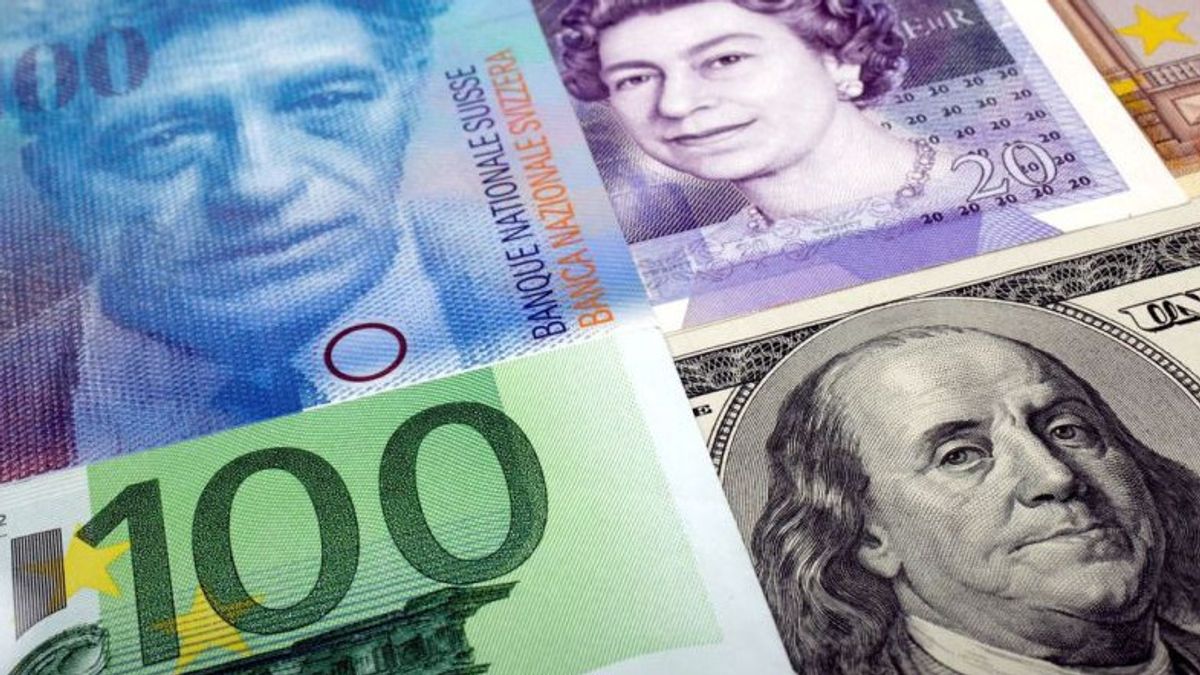JAKARTA – The world economic turmoil has affected major currencies. The dollar continued to fall sharply in more than a month in Asia on Thursday morning, May 5. This came after the US Federal Reserve raised its benchmark interest rate by 50 basis points but lost enthusiasm on the idea for bigger hikes to occur going forward.
The US dollar index fell from a five-year high and fell 0.9 percent overnight to 102,450. Antipodean currencies surged, particularly the Aussie dollar, which enjoyed its biggest one-day percentage gain in more than a decade as investors rolled back bets on the Fed remaining ahead of Australia's central bank.
The euro was up nearly 1.0 percent and last bought 1.0606 dollars. The yen struggled back to the stronger side at 130 per dollar for the first time in a week, last trading at 129.26.
Sterling was up more than 1.0 percent at $1.2605 and the swap market was fully expecting a 25 basis point increase from the UK central bank on Thursday.
The Fed's hike was the biggest since 2000 as policymakers immediately tried to contain inflation. But at a press conference afterwards the Fed Chair, Jerome Powell, said Fed members were not actively considering future 75 basis point moves.
Fed funds futures rallied to take some of the lead from the market's aggressive view of US interest rates, although a further 200 basis point hikes remain priced for the rest of the year.
"The Fed can't (or, better, won't) deter the hawkish market the market has set," Brian Daingerfield, head of G10 foreign-exchange strategy at NatWest Markets, wrote in a note to clients.
"I don't think it's hyperbole to say that today represented the first 'dovish' surprise by the Fed relative to market expectations in more than six months," he added.
The Aussie's 2.2 percent jump was the biggest since late 2011 and followed a surprisingly hawkish turn from Australia's central bank, which started its rate hike cycle with a bigger-than-expected 25 basis point gain on Tuesday, May 3.
The Aussie ended at $0.7236, slightly lower than an overnight peak of $0.7265. The New Zealand dollar jumped 1.7 percent, its biggest one-day gain in two years, to sit back above $0.65 at $0.6537.
Dollar losses lend support to cryptocurrencies as well. Bitcoin had its best day in more than five weeks, rising 5.0 percent to just under $40,000. Trading was thinned in Asia by a public holiday in Japan.
The English, Chinese, Japanese, Arabic, and French versions are automatically generated by the AI. So there may still be inaccuracies in translating, please always see Indonesian as our main language. (system supported by DigitalSiber.id)













